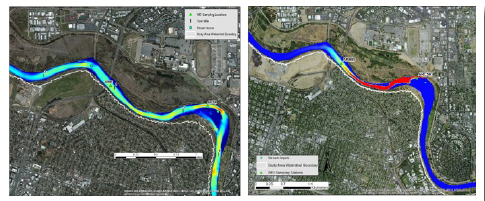
More Natural Disasters? Blame Climate Change.
 Drought. Flooding. Wildfires. Snowstorms. Heat waves. It’s hard to miss today’s frequent headlines recounting tales of extreme weather that have devastated parts of our world. More than flukes or subtle environmental shifts, we now have overwhelming data directly connecting the increase in extreme weather with Earth’s global warming. The Intergovernmental Panel on Climate Change (IPCC)’s Sixth Assessment Report openly stated, “the human-caused rise in greenhouse gases has increased the frequency and intensity of extreme weather events." After centuries of being on the receiving end of human-induced abuse, it would appear that Mother Nature is fighting back in the form of natural disasters.
Drought. Flooding. Wildfires. Snowstorms. Heat waves. It’s hard to miss today’s frequent headlines recounting tales of extreme weather that have devastated parts of our world. More than flukes or subtle environmental shifts, we now have overwhelming data directly connecting the increase in extreme weather with Earth’s global warming. The Intergovernmental Panel on Climate Change (IPCC)’s Sixth Assessment Report openly stated, “the human-caused rise in greenhouse gases has increased the frequency and intensity of extreme weather events." After centuries of being on the receiving end of human-induced abuse, it would appear that Mother Nature is fighting back in the form of natural disasters.
Weather data has been critical to our understanding of both climate change and natural disasters. Fortunately, scientists have been maintaining weather records since the 1800s, and, as science progressed, their tools have become more sophisticated and broader in scale. Data showing weather frequency and intensity over time has been entered into climate models to show behavioral trends over land, seas, air, and space. Data collection hasn’t been limited to the Earth itself; NASA has developed a satellite called the Earth System Observatory that will work, “in tandem (with other tools) to create a 3D, holistic view of Earth, from bedrock to atmosphere.”
The impact of extreme weather has been difficult to quantify. Beyond the economic ramifications, extreme weather has led to losses of human and animal lives, homes, businesses, and livelihoods, and, of course nature itself. The National Oceanic and Atmospheric Administration’s National Centers for Environmental Information has calculated that, since 1980, there have been 378 weather and climate disasters within the U.S. alone that have exceeded $1 billion.Those 378 events together account for more than $2.690 trillion in losses. Trying to pinpoint the cause of these losses has led the U.S. Congress to mandate a National Climate Assessment report that observes the impacts of climate change.
We know that climate change has led to changes within our lives as well. Spring comes a full month earlier than it did in 1980. How we calculate time will eventually change as global warming slows down the Earth’s rotation. And, of course, we have dramatic changes in our weather. Unfortunately, as the Earth’s climate changes in response to our actions, we will have to expect more weather extremes and natural disasters.

Waterborne Environmental, Inc. Hired to Create Online Dashboard That Tracks Nutrient Loss Across the State of Missouri
READ MORE

Swimming with Bacteria: Water Quality Concerns at the 2024 Paris Olympics
READ MORE

The Right Tool – Multidimensional Models
READ MORE



